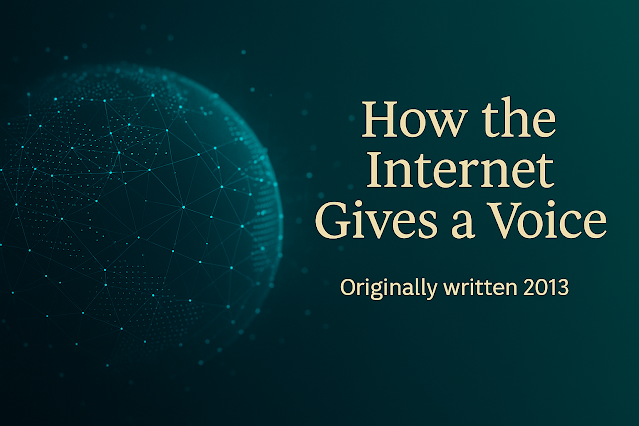Originally written January 15, 2013 – restored September 2025
Rambling somewhere in the echo chambers of my head is a maelstrom of thought responses on how the Internet gives me a voice.
Before I became an indulgent convert to the realm of internet technology its profuse envelopment of all my interactive intelligence I was one of its most vocal combatants.
In one of my undergraduate Communications classes in the early nineties, I argued that although the advent of the Internet and all its promised breakthroughs to connect people, expand outreach, and enable globalization was hailed as a cataclysmic shift in communication, its disadvantages loomed larger.
From where I stood at the time with limited access, experience, and scope the Internet looked like a formula for deepening marginalization. My concern was that those without economic parity would be left behind, while richer nations and wealthier individuals gained unfair advantage.
And yet, a decade later, I was a radical convert.
By 2013, globalization flourished. Social injustices were broadcast with warp speed. Politics, religion, and militaries stood under the microscope of the collective eye. The Web spread wider, and paradoxically, the world felt closer.
Kudos to the advocacy of the internet zeitgeists Steve Jobs, Bill Gates, Mark Zuckerberg, and countless others. I thrilled to the discoveries, the connections, the sheer immediacy of access. Shopping, politics, faith, culture, scholarship, business all of it reached me in real time.
In its most primordial bellow, the Internet voice became the greatest conduit of human integration: a platform for research, access, validation, and globalization for any idea one’s mind could conceive and construct.




